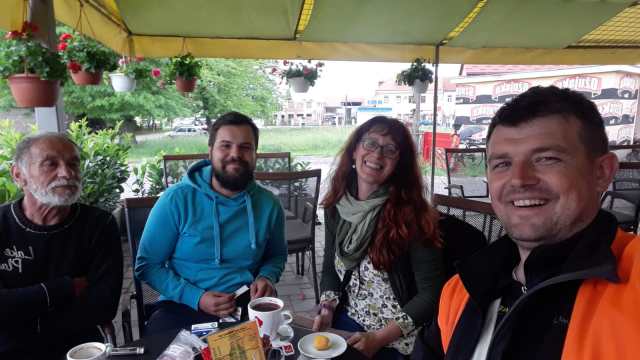True stories and biographies always fascinated me. Whenever I feel discouraged or on a low ebb, I just need to take a peak in my stacked away list of great stories about people who held on in spite of seemingly unsurmountable circumstances and…it’s done. It’s like taking an I.V. drip for the soul. Many of them are believers and missionaries but I highly esteem all kinds of fighters and world changers, especially the ones who were motivated by love.
Even though I’ve never been one, the category of teachers is high on my list, most probably because it extols virtues such as love, faith and endurance. I recently watched again an older movie about Marva Collins, an American educator who recently passed away. She was just an ordinary teacher, and a mother of 3, but started an experimental school in a poor neighbourhood of Chicago, in the top floor of her house. Needless to say, she faced all kinds of obstacles, but the love she felt for these kids was stronger than anything. Eventually her efforts were rewarded and she went on to be a sample to many. I was so impressed by the faith she had in some of these kids, who didn’t seem bright at all but thanks to her enduring love went on to amazingly succeed in love.

Like I said, I’m not a teacher but have been working with youth for over 20 years. Along with my family, I moved to Croatia in 1996 to help with the aftermath of the bloody civil war former Yugoslavia was incurring. In the beginning I was fully involved in the actual recipients of our humanitarian efforts, mainly refugees or displaced people of all ages.
True to one of my favourite quotes, that “the best way to be happy is to make others happy”, I started welcoming a number of young people who wanted to give more meaning to their lives and help with some volunteering, and I truly saw that principle come to life endless times watching that sparkle in their eyes whenever they came back from a trip or a visit to some poor family and they made a difference in someone’s life.
Andrea was one of them. He was a troubled 19 year old who had experimented with drugs, satanism and was heading for a dark future, often sleeping on park benches. Something in the way he returned that first hug I gave him, gave me hope and assurance that a great heart was beating underneath that rough appearance.
Surely enough, as soon as Andrea started visiting refugees and lonely people, his whole life changed! He had been a rebel without a cause but now he had found purpose and meaning. Many commented how they saw an angel in him and to this day he’s actively involved in making this world a better place.


